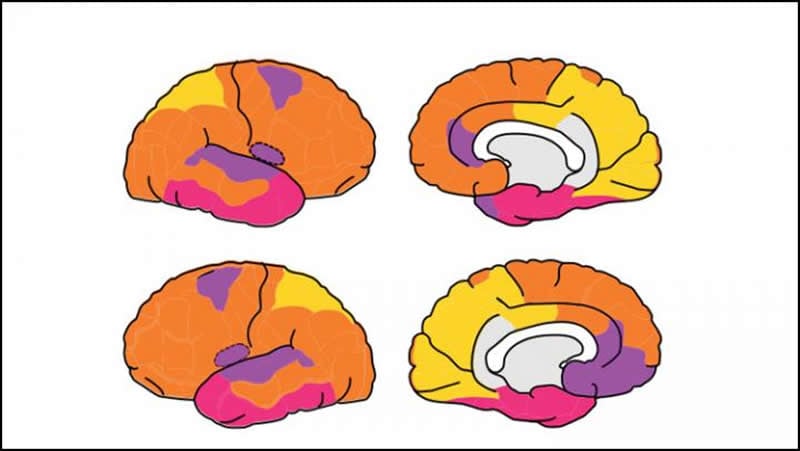Summary: Features of the functional connectome are present in the fetal brain during the second and third trimesters of pregnancy.
Source: SfN
The fundamental organization of brain networks is established in utero during the second and third trimesters of fetal development, according to research published in Journal of Neuroscience. The finding lays the groundwork for understanding how the prenatal period shapes future brain function.
The brain functions as a complex network of regions that communicate with each other, known as the functional connectome. During fetal development, the functional connectome begins to take form as early as the late second trimester of pregnancy.
Turk et al. examined 105 pregnant women between 20 and 40 weeks gestation who participated in a functional magnetic resonance imaging (fMRI) study – a non-invasive technology that allows researchers to peer at the connections forming in the fetal brain.

The researchers found that second and third trimester fetuses possess a blueprint for the functional connection. In comparison with the mature adult connectome, the fetal connectome showed a 61% overlap in motor, visual, auditory and some cognitive functions. The research opens the possibility to examine how maternal stress, alcohol use, infections and risk factors exert lasting impact on brain circuitry.
Source:
SfN
Media Contacts:
Calli McMurray – SfN
Image Source:
The image is credited to Turk et al., JNeurosci 2019.
Original Research: Open access
“Functional Connectome of the Fetal Brain”. Elise Turk, Marion I. van den Heuvel, Manon J. Benders, Roel de Heus, Arie Franx, Janessa H. Manning, Jasmine L. Hect, Edgar Hernandez-Andrade, Sonia S. Hassan, Roberto Romero, René S. Kahn, Moriah E. Thomason and Martijn P. van den Heuvel.
Journal of Neuroscience doi:10.1523/JNEUROSCI.2891-18.2019.
Abstract
Functional Connectome of the Fetal Brain
Large-scale functional connectome formation and re-organization is apparent in the second trimester of pregnancy, making it a crucial and vulnerable time window in connectome development. Here we identified which architectural principles of functional connectome organization are initiated prior to birth, and contrast those with topological characteristics observed in the mature adult brain. A sample of 105 pregnant women participated in human fetal resting-state fMRI studies (fetal gestational age between 20 and 40 weeks). Connectome analysis was used to analyze weighted network characteristics of fetal macroscale brain wiring. We identified efficient network attributes, common functional modules and high overlap between the fetal and adult brain network. Our results indicate that key features of the functional connectome are present in the second and third trimesters of pregnancy. Understanding the organizational principles of fetal connectome organization may bring opportunities to develop markers for early detection of alterations of brain function.
SIGNIFICANCE STATEMENT
The fetal to neonatal period is well known as a critical stage in brain development. Rapid neurodevelopmental processes establish key functional neural circuits of the human brain. Prenatal risk factors may interfere with early trajectories of connectome formation and thereby shape future health outcomes. Recent advances in MRI have made it possible to examine fetal brain functional connectivity. In this study, we evaluate the network topography of normative functional network development during connectome genesis in utero. Understanding the developmental trajectory of brain connectivity provides a basis for understanding how the prenatal period shapes future brain function and disease dysfunction.






